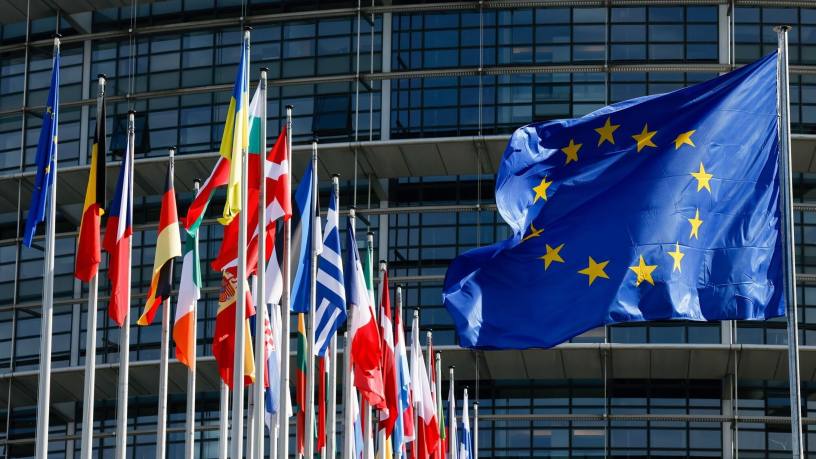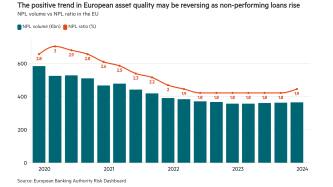The European Council and parliament have reached a provisional agreement on a proposal for a regulation on environmental, social and governance rating activities, aimed at boosting investor confidence in sustainable products.
The agreed text aims to reinforce transparency around ESG ratings and foresees the possibility to provide separate E, S and G ratings. If a single rating is provided, the weighting of the E, S and G factors will have to be made explicit.
Financial market participants or financial advisers disclosing ESG ratings as part of their marketing communications will not be exempted from the regulation and will have to include information about methodologies used on their website.
ESG rating providers established in the EU will need to obtain an authorisation from the European Securities and Markets Authority, while those from outside the union will need to have their ESG ratings endorsed by an EU-authorised provider.
The deal agrees a “lighter, temporary and optional registration regime” for smaller rating providers.
“The EU developments mark yet another important milestone in the international supervision and regulation of ESG ratings providers,” said Raza Naeem, financial regulation partner at Linklaters. He said the EU proposals went “much further than any of the other regimes we have seen internationally”, highlighting the “voluntary codes or regulatory regimes emerging in leading financial jurisdictions such as Japan, Singapore and the UK”.
“Overall the announcement represents a significant development for not just providers of ESG ratings within the EU but also their users, who, in some cases, such as those subject to the Sustainable Finance Disclosure Regulation, will need to provide disclosures of ESG ratings used and/or will indirectly benefit from the increased regulation of their ESG ratings providers,” said Naeem.
“The proposed transparency rules will substantially improve how ESG ratings are interpreted,” said Vincent Vandeloise, senior research and advocacy officer at the non-profit Finance Watch, in a statement. “Providers will, among others, be required to disclose their methodologies, explain the materiality objectives of their ratings, and disaggregate environmental, social and governance factors.”
Giorgia Ranzato, sustainable finance manager at the non-profit Transport & Environment, said: “For a long time the ESG ratings landscape has looked like the Wild West — unregulated and opaque. Major polluters are getting high ESG scores despite their poor track record.”
She suggested the deal reached by EU negotiators could help change this and “hopefully empower investors to make more informed decisions”.
“Importantly, negotiators managed to preserve minimum transparency requirements, such as a clear indication of whether the rating will cover just the company’s exposure to E, S and G risks, or also its environmental and social impact on the world,” Ranzato continued. “These provisions represent the backbone of this regulation and are crucial for creating rules that have a meaningful impact.”
Listing Act agreement
Meanwhile, on February 1, the EU Council and parliament reached a provisional agreement on the EU Listing Act, aimed at making public capital markets in the bloc more attractive for EU companies, and at making it easier for businesses of all sizes — including small and medium-sized enterprises — to list on European stock exchanges.
The WWF, a non-profit, welcomed the decision to include information on the environmental performance of companies considered for investment in prospectus summaries.
“Integrating information about environmentally sustainable activities into the summary prospectus is a win-win scenario: it sheds light on environmental matters and it also benefits retail investors, empowering them to be better informed about the sustainability of their investments,” WWF sustainable finance policy officer Mathilde Nonnon said in a statement.
The non-profit also welcomed the introduction of a notification designed to inform investors when a company has identified environmental issues as a material risk factor. “Investments exposed to new fossil fuels activities can increasingly lead to ‘stranded assets’, making it essential for investors to be duly informed about such risks,” it said.
The WWF recommended that the EU now takes steps to introduce a “sustainability alert” mechanism to warn investors when investments do not align with the objectives of the Paris Agreement.
Caroline Le Meaux, global head of ESG research, engagement and voting policy at Amundi, says she did not see the changes as a game-changer. “If a company wants to list its equity on the European market it will have to give this information in the documentation, as for a bond, but the company probably is already giving this information through its annual report,” she said.
This article first appeared in Sustainable Views, a Financial Times Group publication.












